Exmouth to Perth Road Trip – Ningaloo Coast, Coral Bay & Kalbarri
Our Exmouth to Perth Road Trip began with a flight to Exmouth and unforgettable snorkelling on the Ningaloo Reef at both Exmouth and Coral Bay. From there, we drove south along the coast, stopping at Carnarvon to see the powerful blowholes, then continuing to Shark Bay to explore ancient stromatolites and spot abundant wildlife. The journey continued through Kalbarri, where dramatic cliffs and river gorges dominate the landscape, before ending in Cervantes, home to the surreal limestone spires of the Pinnacles, our final stop before Perth.
Table of contents
- Exmouth, exploring the Ningaloo Coast
- Coral Bay Snorkelling Adventures with Manta Rays
- Road Trip South: Shark Bay Stopover
- Kalbarri National Park – Coastal Cliffs & Hikes
- Cervantes & the Pinnacles
Ningaloo Coast
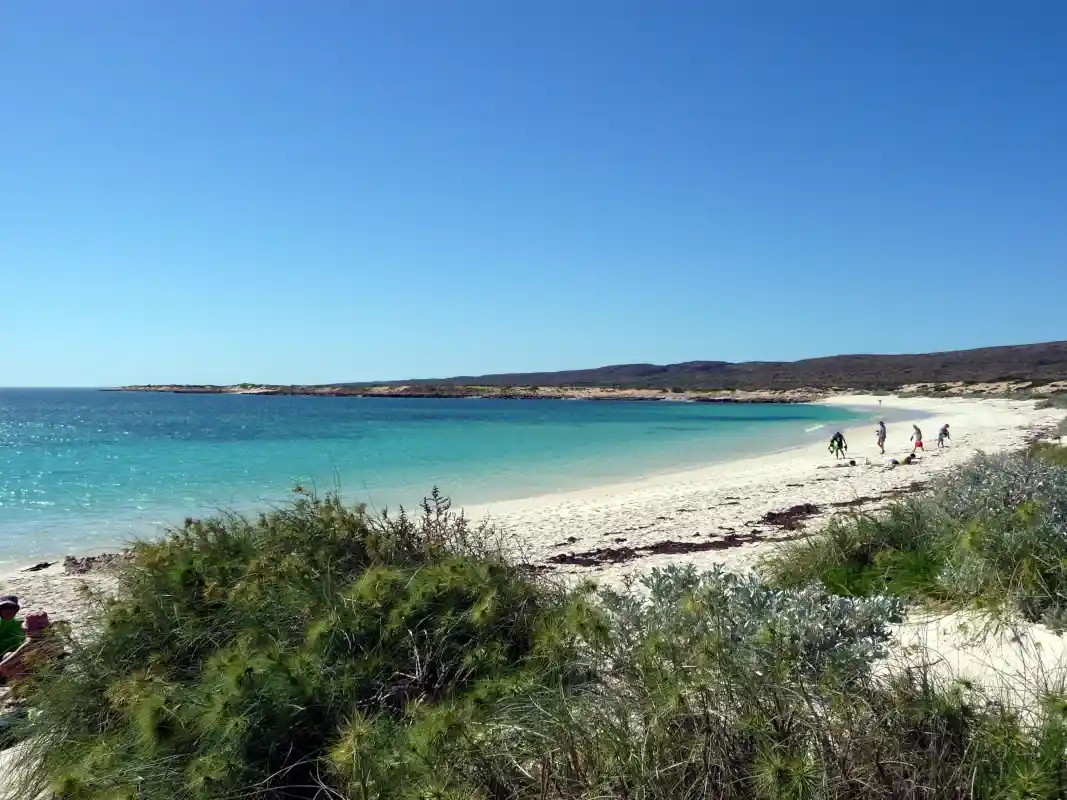
After a long flight to Exmouth, we wasted no time slipping into the crystal-clear blue waters of the Ningaloo Coast for a refreshing first swim. Stretching along Western Australia’s remote northwest, the Ningaloo Coast is home to the world-famous Ningaloo Reef, one of the best places on the planet for shore-based snorkelling, where vibrant coral gardens and marine life lie just steps from the beach.
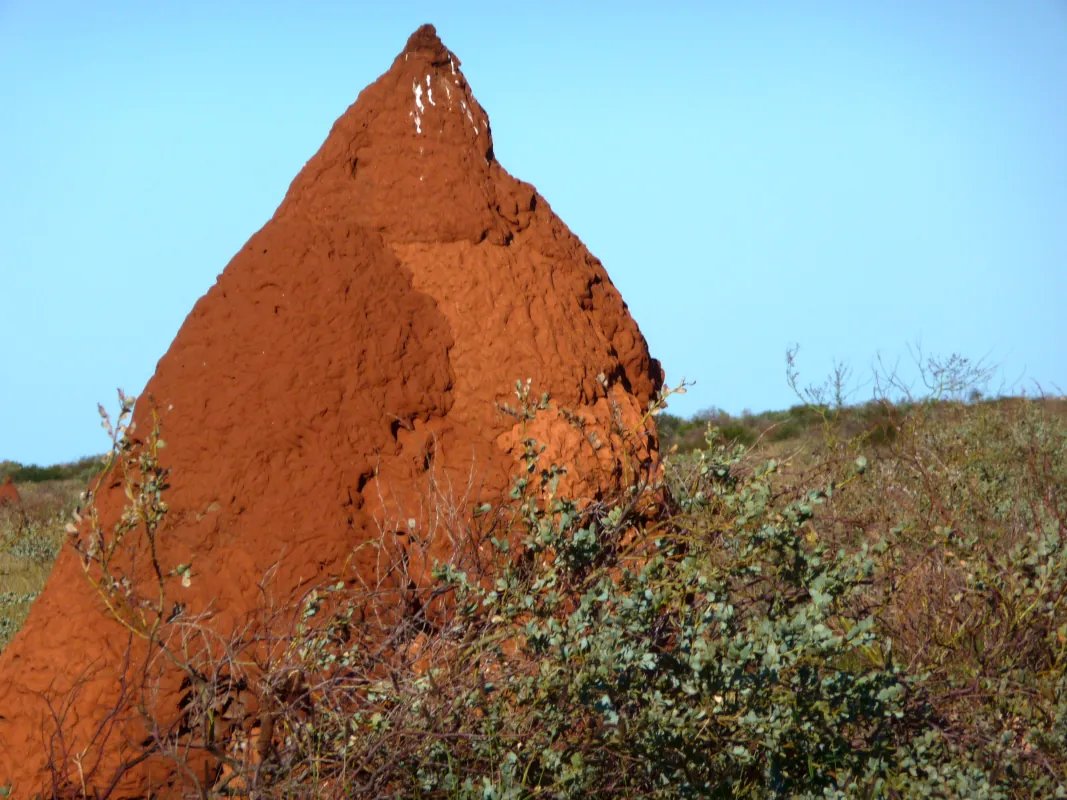
We’ve seen the tall termite mounds and the remarkable Magnetic Termite Mounds in the Northern Territory. In contrast, Western Australia’s termite mounds stand out with their striking deep-red hue.
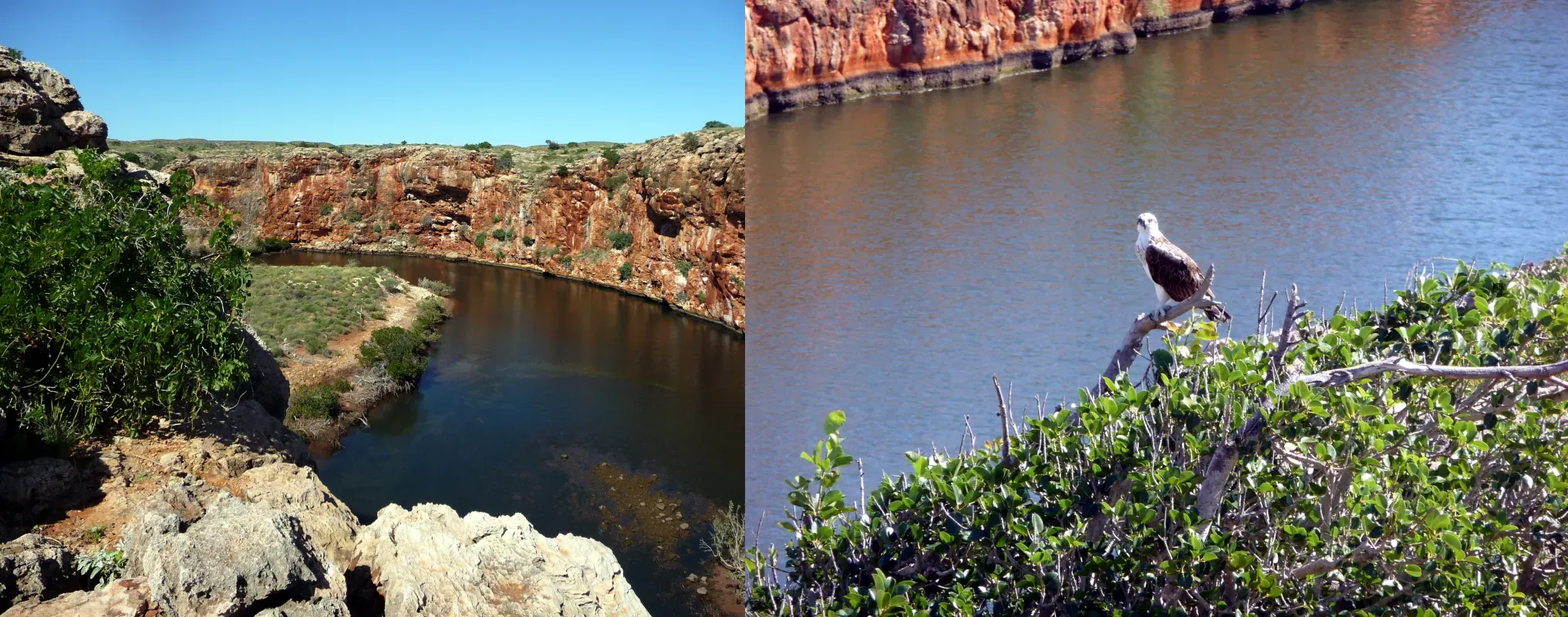
While hiking through Yardie Gorge in Cape Range National Park, we enjoyed stunning views over Yardie Creek and its dramatic red cliffs. Along the trail, we were lucky to spot a common wallaroo (euro) and an osprey perched on a tree. For those wanting a different perspective, a boat cruise through Yardie Creek is also possible.
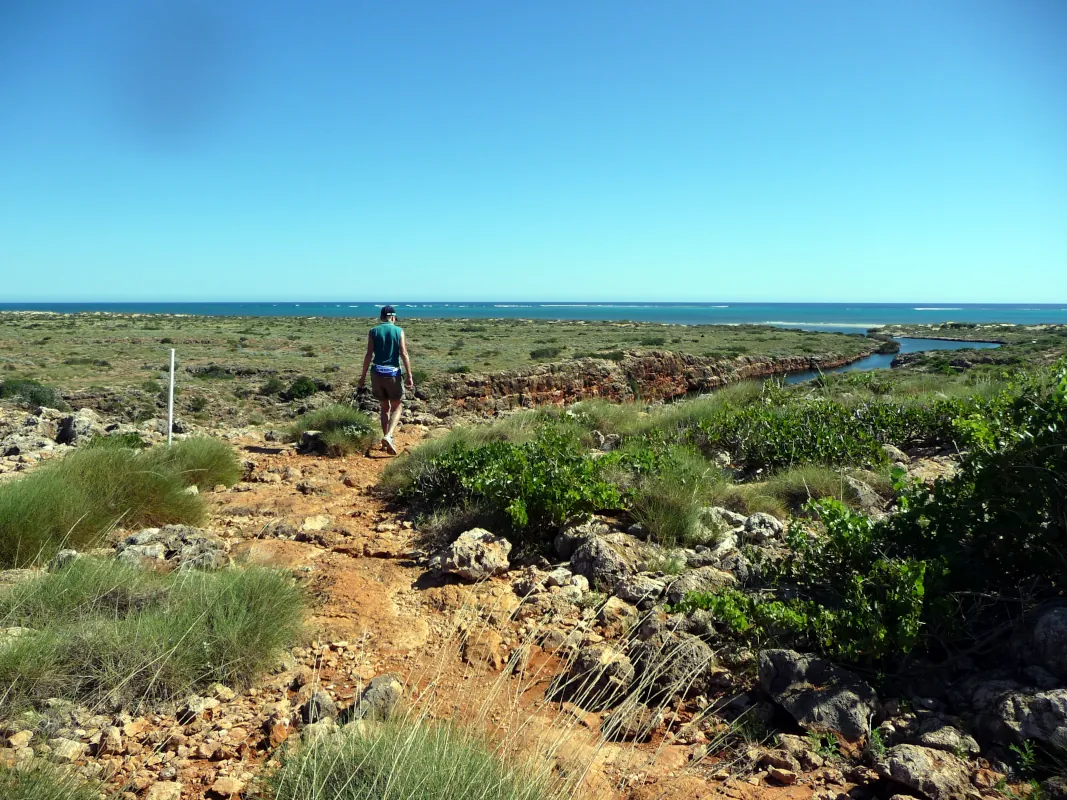
After our hike, we went snorkelling in the crystal-clear waters of Turquoise Bay. Turquoise Bay presents two fantastic options.
1) The effortless drift snorkel, where you simply enter at the southern end and float north. 2) Alternatively, for a shorter and more sheltered experience, perfect for beginners and families, we opted for a bay snorkel, swimming out from the calm, protected section of the bay.
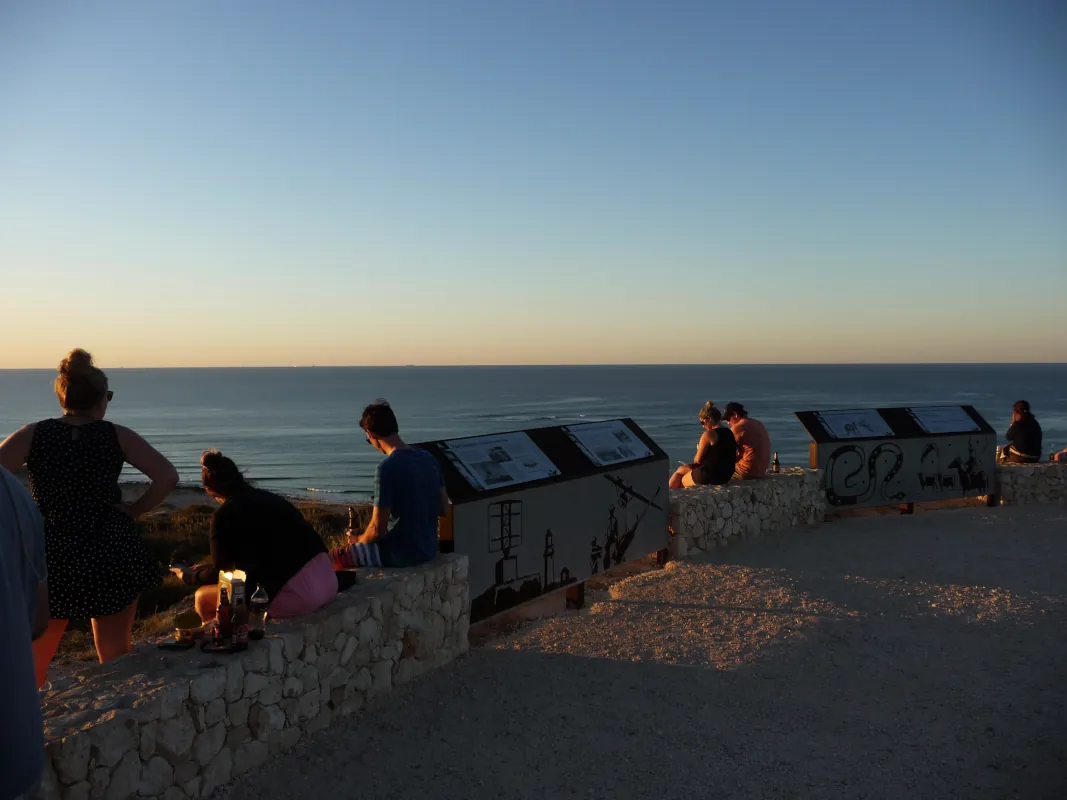
We had a fantastic time at the historic Vlamingh Head Lighthouse near Exmouth, high above the Indian Ocean and with sweeping coastal views. It’s a favourite spot for sunrise and sunset watchers, and during the season, for spotting migrating whales. We timed our visit perfectly for sunset, and we were well organised, of course, with a bottle of bubbly to toast the moment.

Living on the East Coast of Australia, we’re used to watching spectacular sun and moonrises over the ocean. Seeing the sun set into the water, instead, was a rare and magical moment, one that made this west coast experience feel truly special.
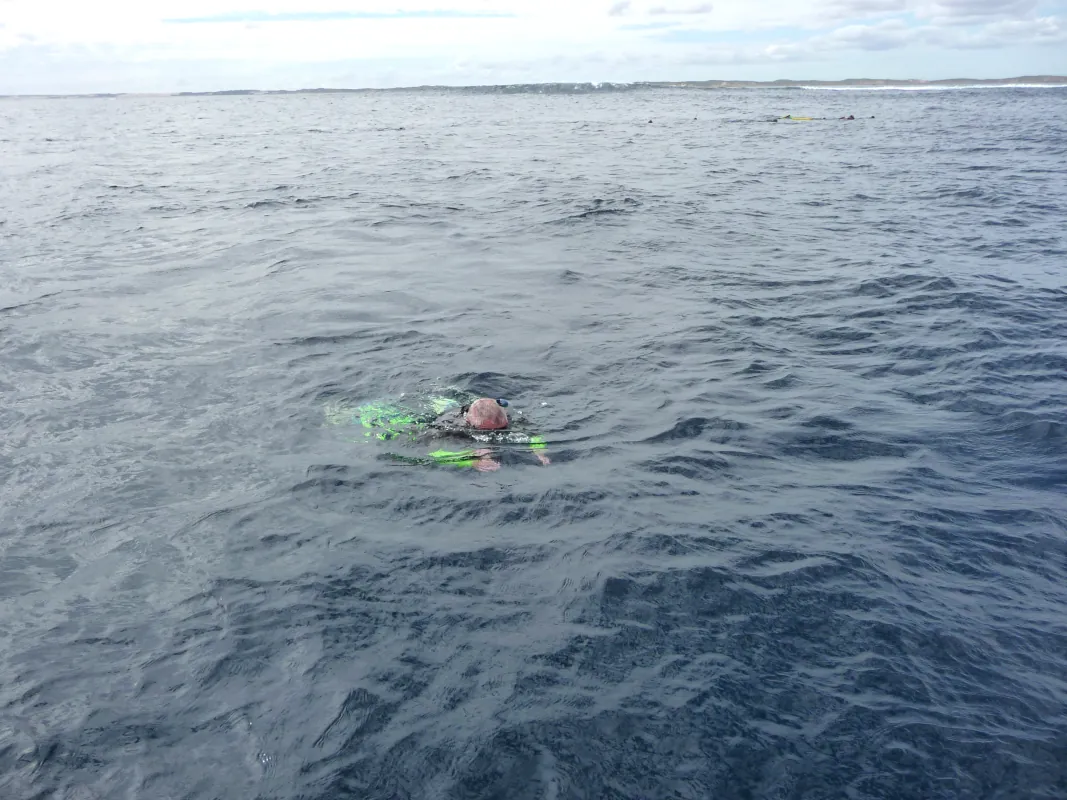
Then, we went on our first boat tour at the Ningaloo Reef with Ningaloo Glass Bottom Boat from Exmouth. During the tour, we had the chance to test out our snorkelling skills. It was a well-organised experience, and we would highly recommend it to others.
Back to table of contents
Coral Bay first stop at our Exmouth to Perth road trip

After a 150-kilometre drive south of Exmouth, we reached Coral Bay. This tiny village, on the turquoise waters of the Ningaloo Reef, has pristine beaches and a vibrant underwater world. We spent three glorious days enjoying this area and went on two exciting snorkelling tours.
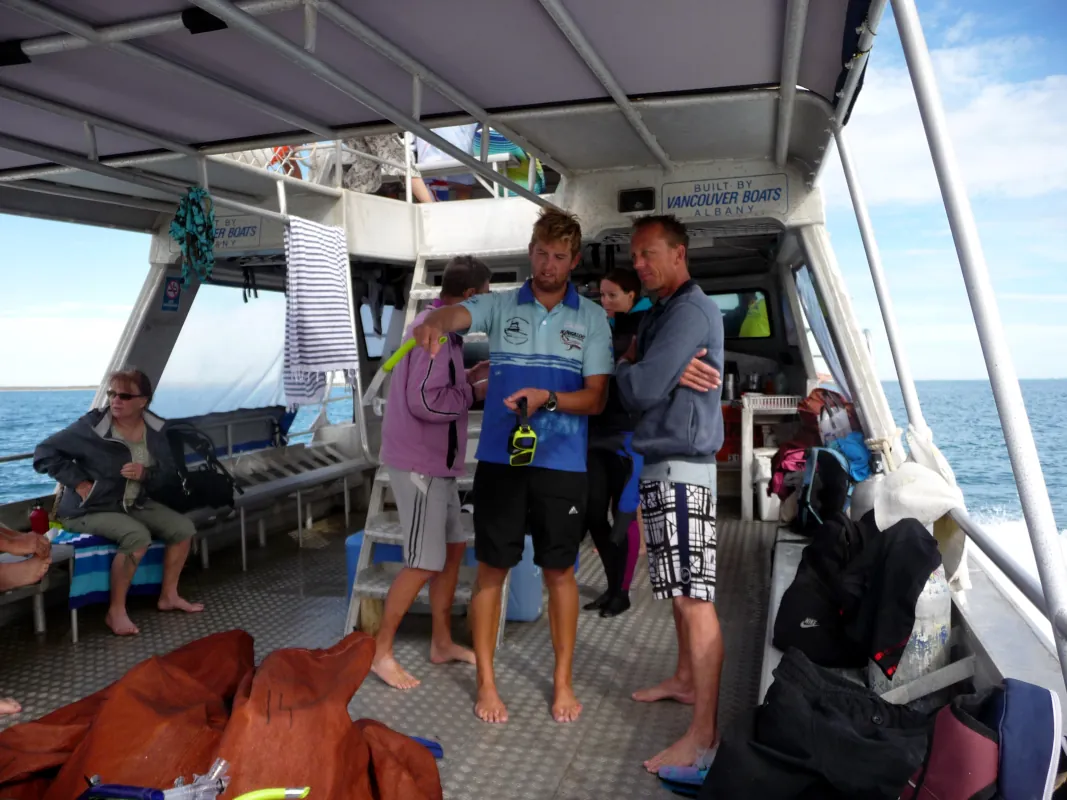
Our first tour, snorkelling with manta rays, was fantastic. The boat was not big and a bit older, but the crew was excellent, helpful, and motivated. As usual, we were the oldest people on the boat, but this was no problem for the crew. A definite five-star experience.

We went to Ningaloo Reef in mid-June. It is the beginning of the annual humpback whales migration from Antarctica to the warmer waters of the Kimberley region. Both Exmouth and Coral Bay offer tours for whale watching and swimming with them. While on our Manta Ray snorkelling tour, we were lucky to spot a few humpback whales, which was an unforgettable experience.
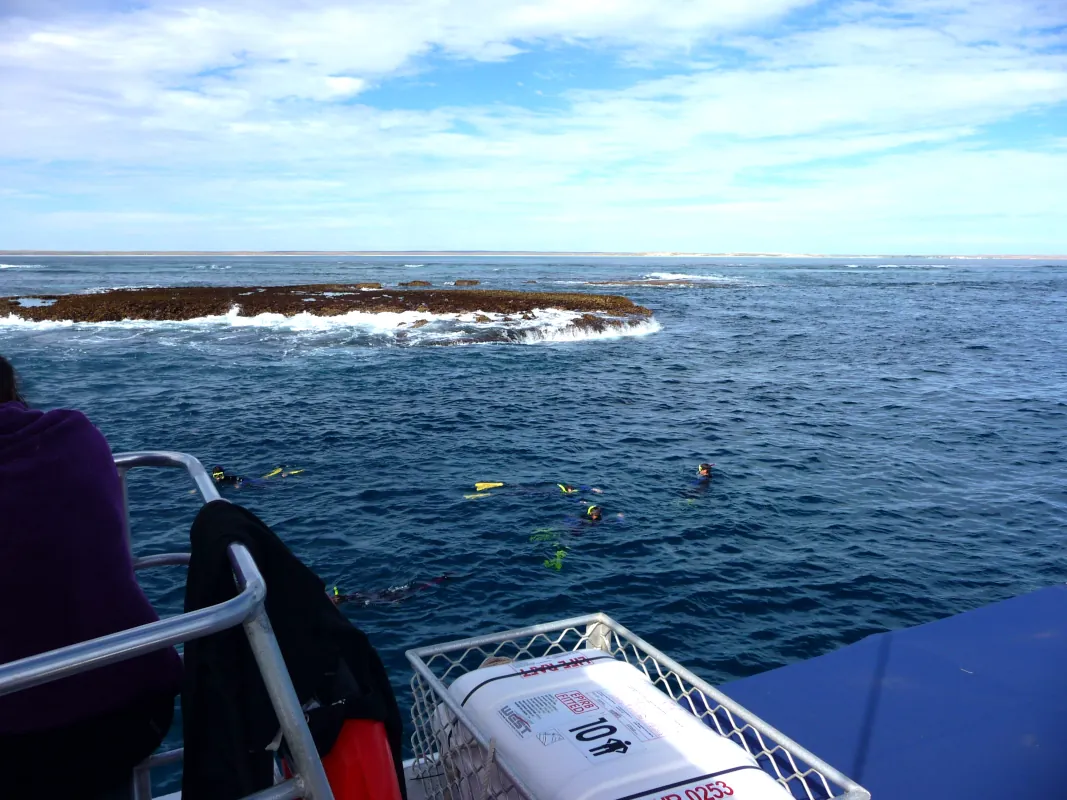
The outer reef snorkelling was a dream. The sheer brilliance of the coral and the dazzling array of fish in the clear blue water was breathtaking. Finally, the magic happened: manta rays, like underwater angels, swept close by. It was an awesome, almost surreal moment.
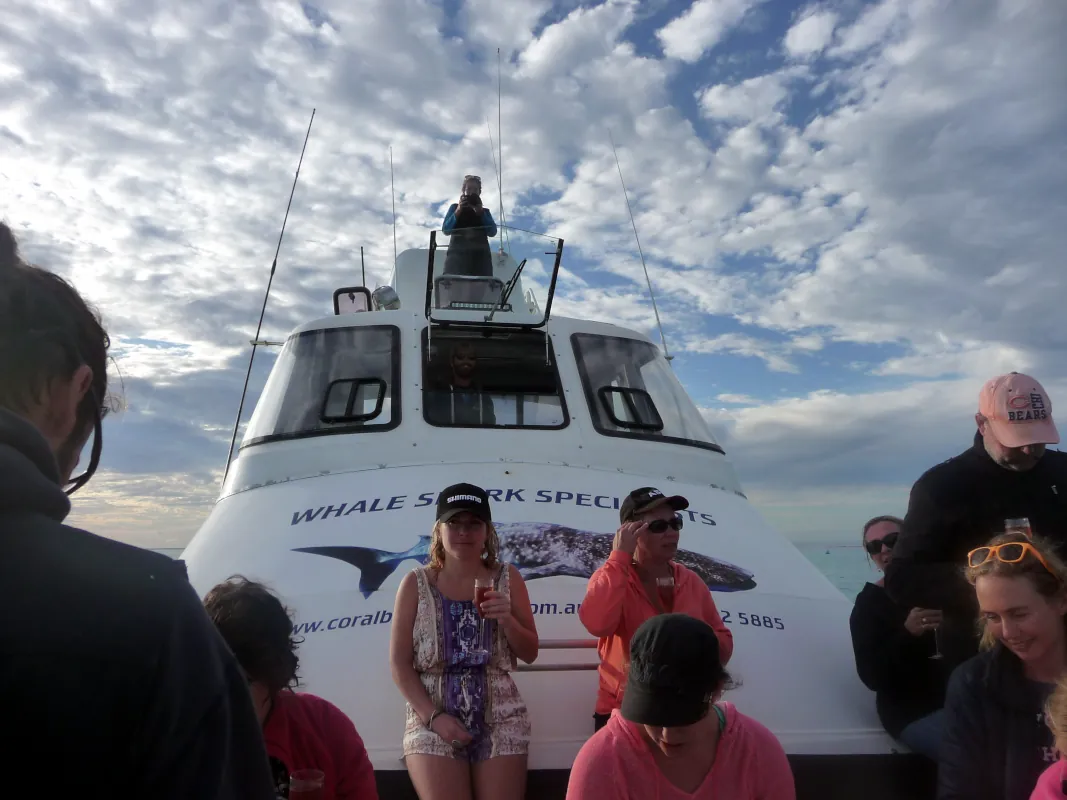
Our whale shark tour at Ningaloo Reef was mixed and ultimately disappointing. While the boat was modern and a spotter plane was used, no whale sharks were located during our trip. The guiding and organisation felt lacking, and the overall experience didn’t meet expectations. Complimentary drinks were offered, but they did little to offset the organisational issues.
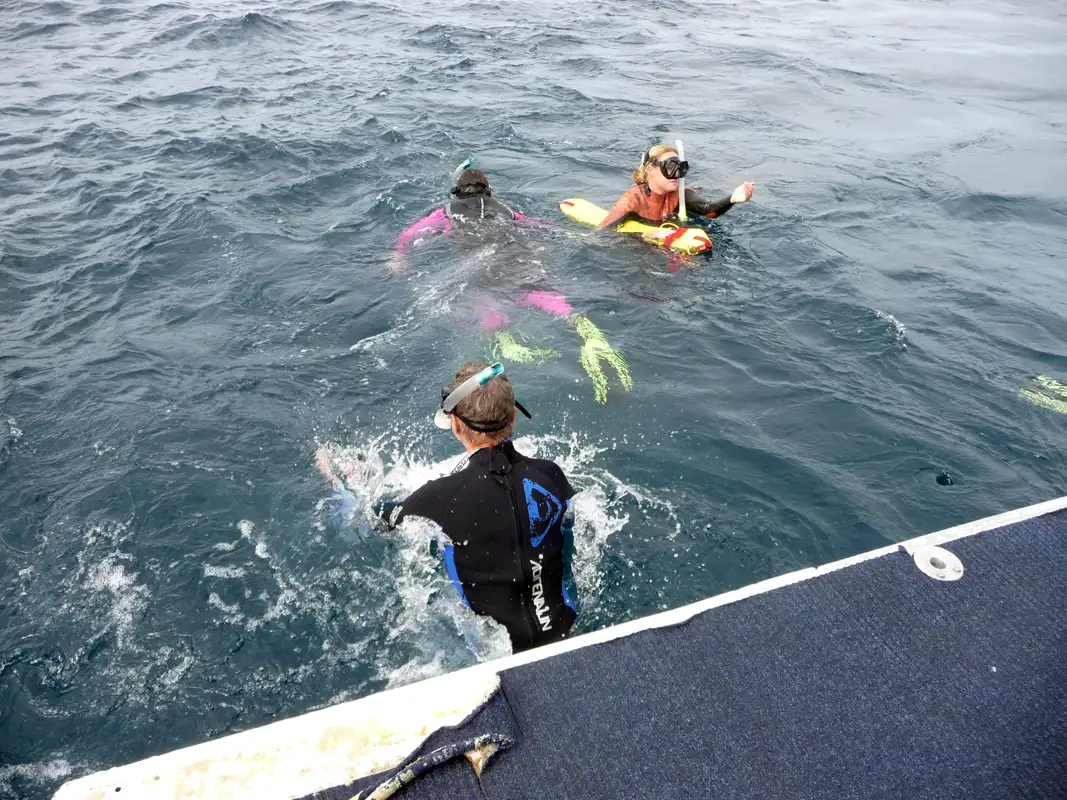
I entered the water too early at the outer reef and was carried away by the current, missing the main group snorkel altogether. My wife, on the other hand, enjoyed a good snorkelling experience with her group, but was then left behind during the return trip and received little assistance, which was both frustrating and disappointing.
Back to table of contents
Shark Bay was the halfway mark on our Exmouth to Perth road trip.
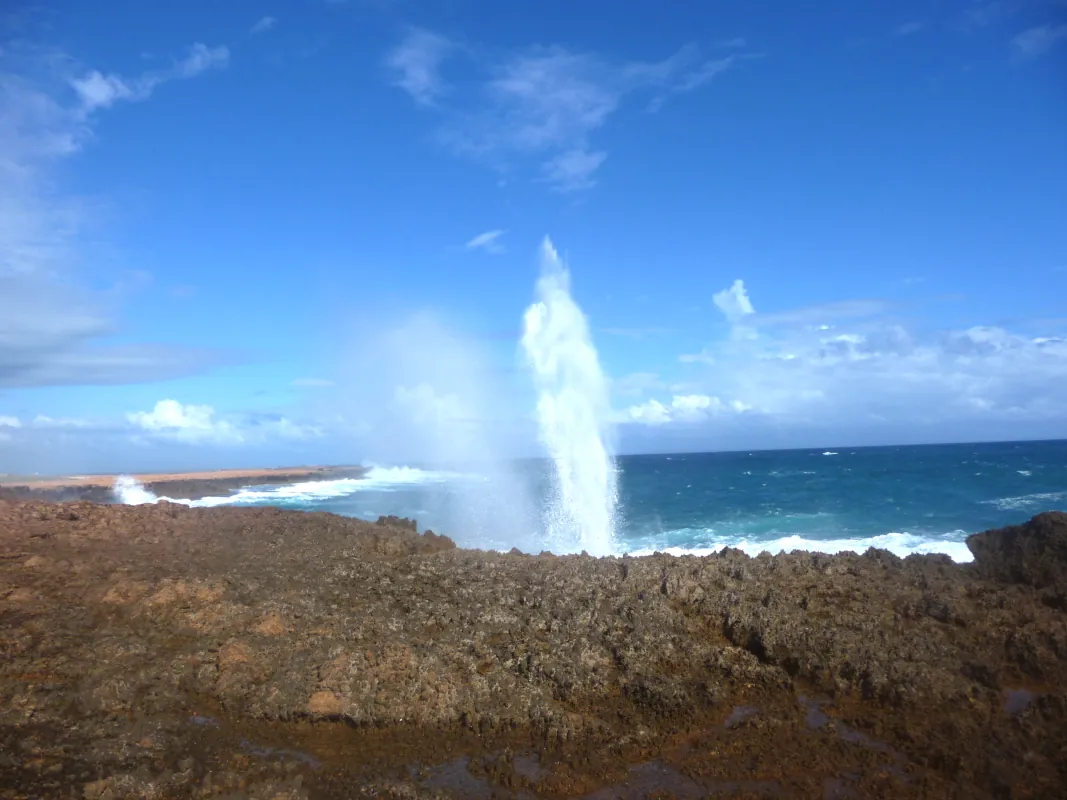
On our way to Carnarvon, we stopped at Point Quobba. Which is famous for its blowholes, a natural sea geysers. They create spectacular water spouts, particularly during strong onshore winds.
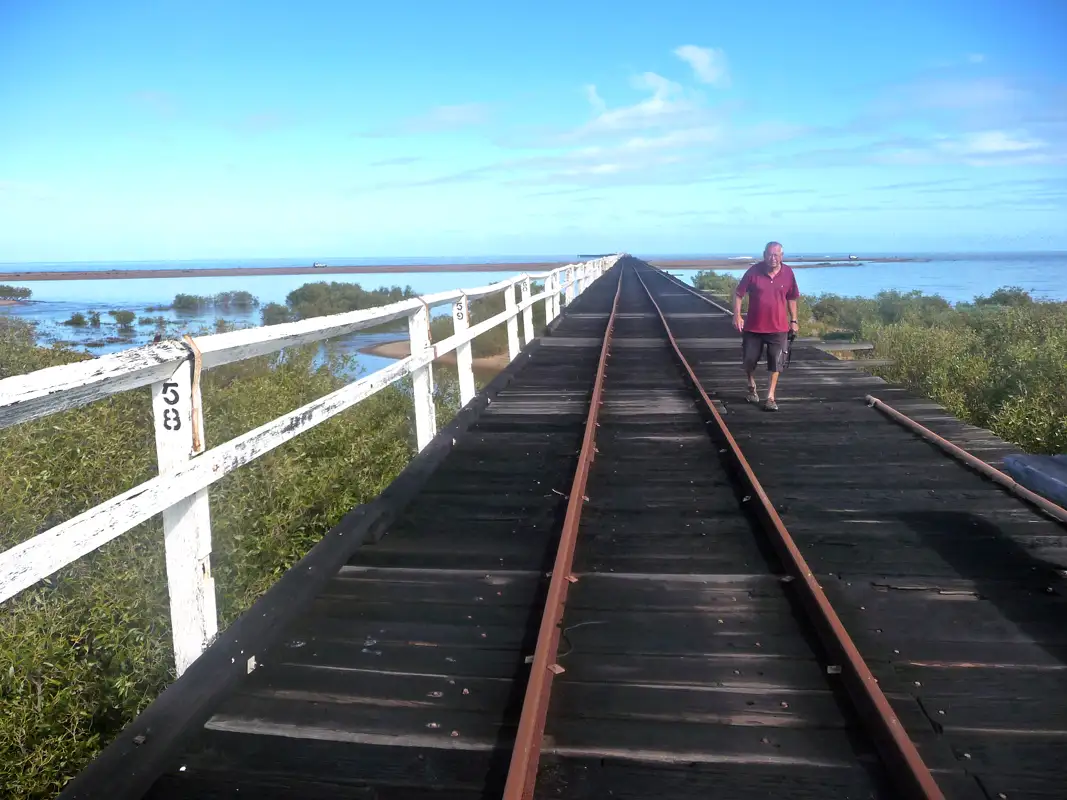
After a night in Carnarvon, we took a delightful walk down the iconic One Mile Jetty. Built in 1897 for exporting wool and livestock, it has transformed into a beloved spot for fishing, sightseeing, and tourism.
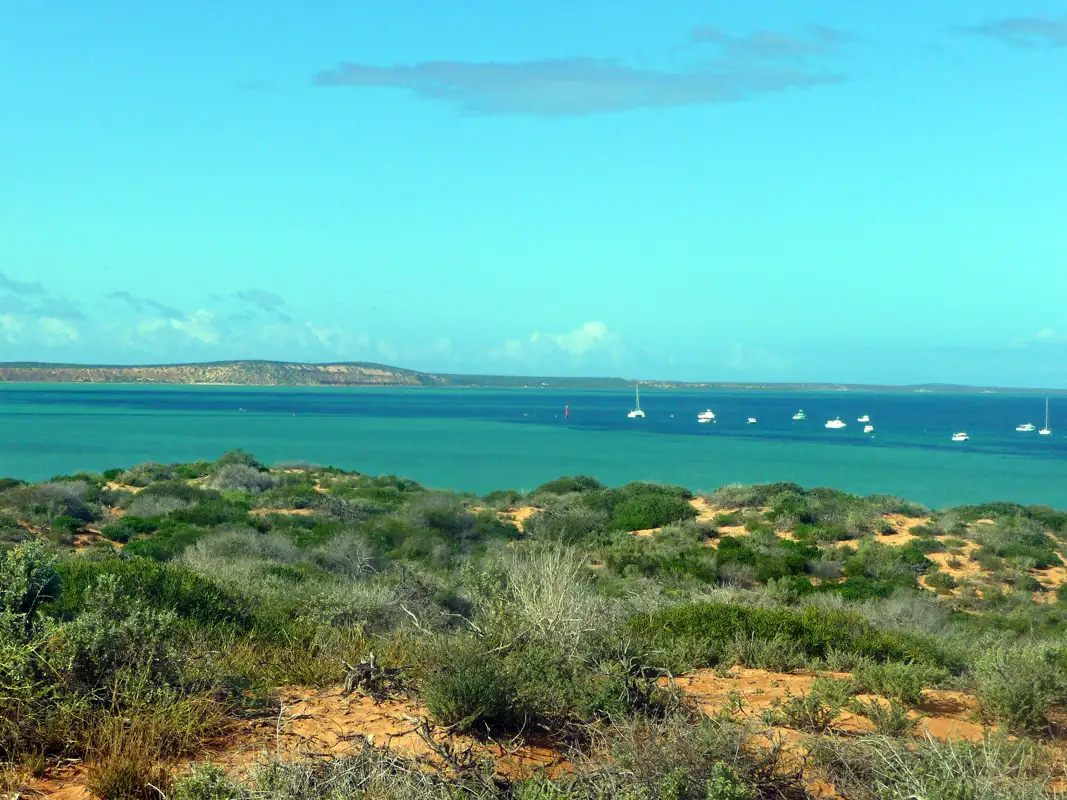
Our next destination was Shark Bay, a World Heritage Site famous for its natural beauty and rich wildlife. It has one of the world’s largest dugong populations and you can interact with wild dolphins that come close to shore. We explored the stunning landscapes of Francois Peron National Park and the ancient stromatolites at Hamelin Pool.
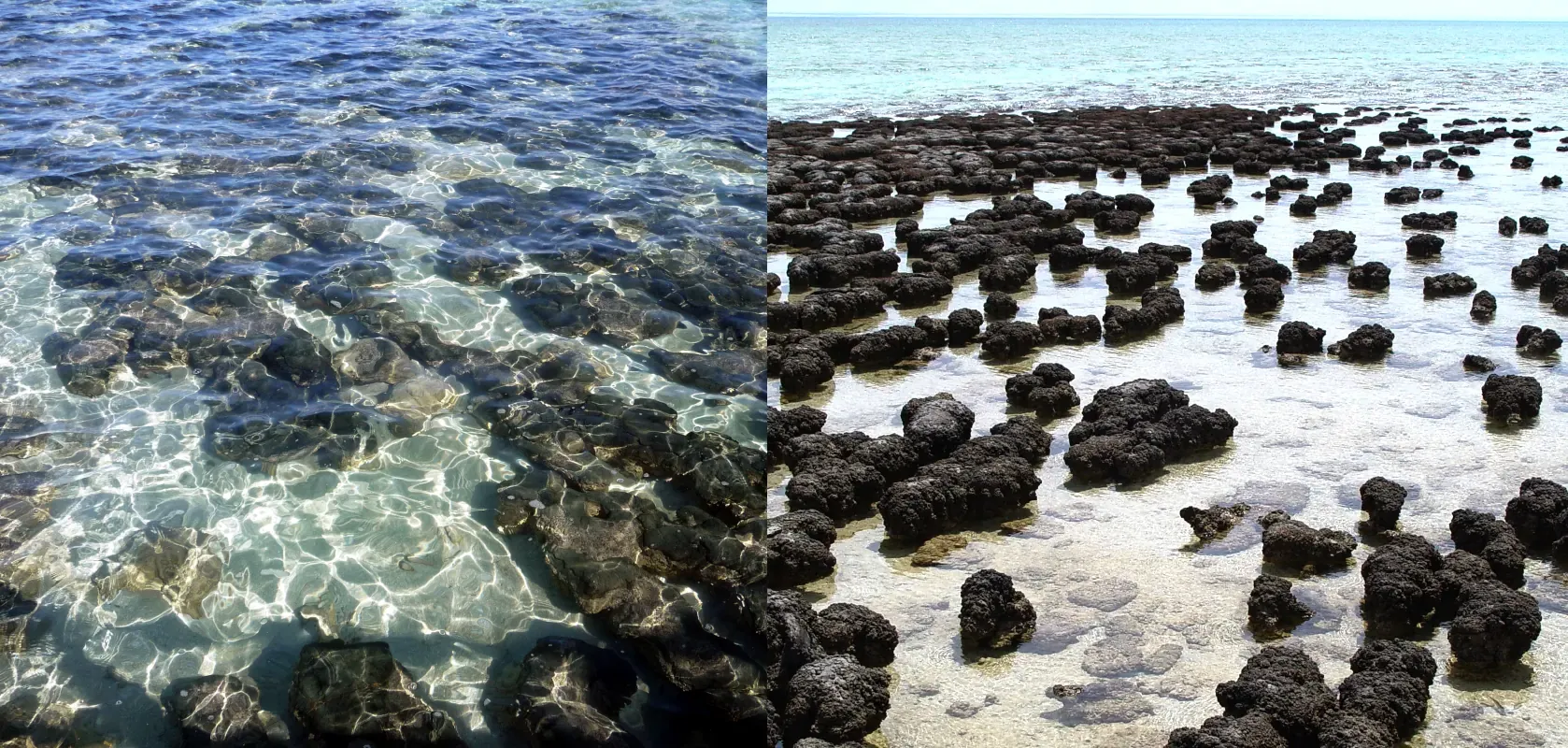
While in Hamelin Pool, we walked along the boardwalk. The signs explained how the Shark Bay stromatolites formed and how early life evolved over 3.5 billion years ago.
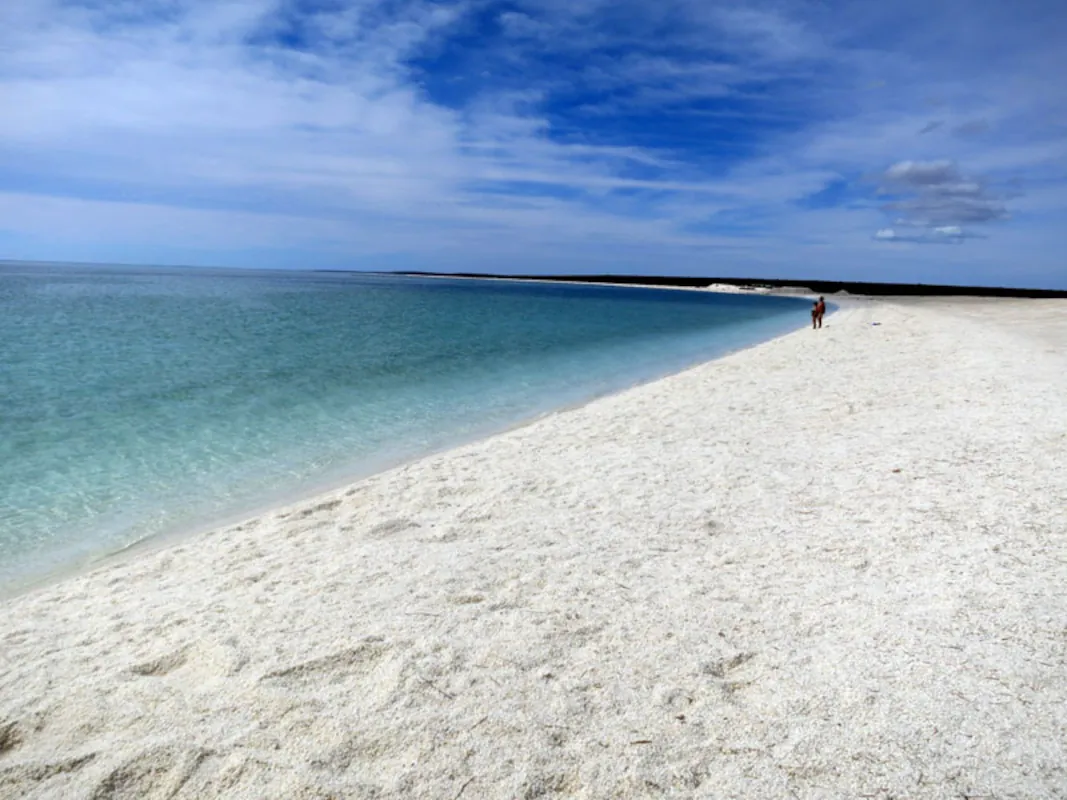
Next, we explored the shell beach. It’s snow-white because it’s made of trillions of tiny Fragum cockleshells. The deposits can reach 10 metres thick in some places.
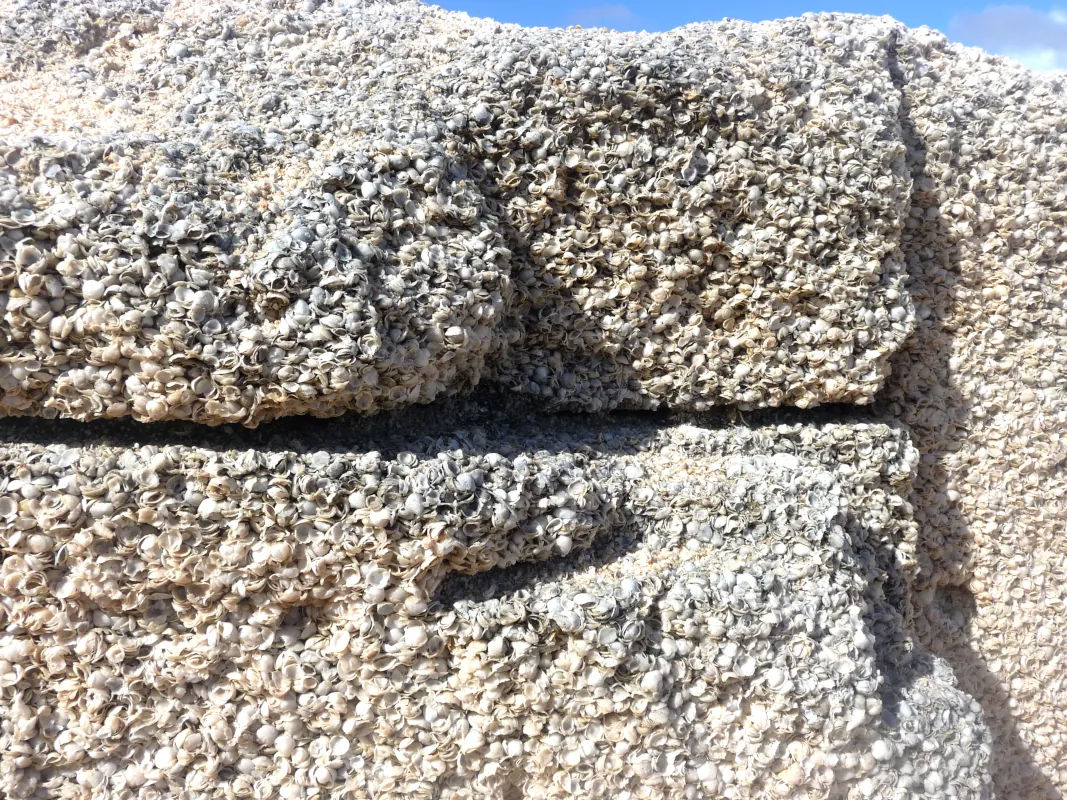
In Shark Bay, you’ll notice that some buildings are actually made from Fragum cockle shell blocks! If you take the Boolagoorda Walk, you can even see where they were once quarried.
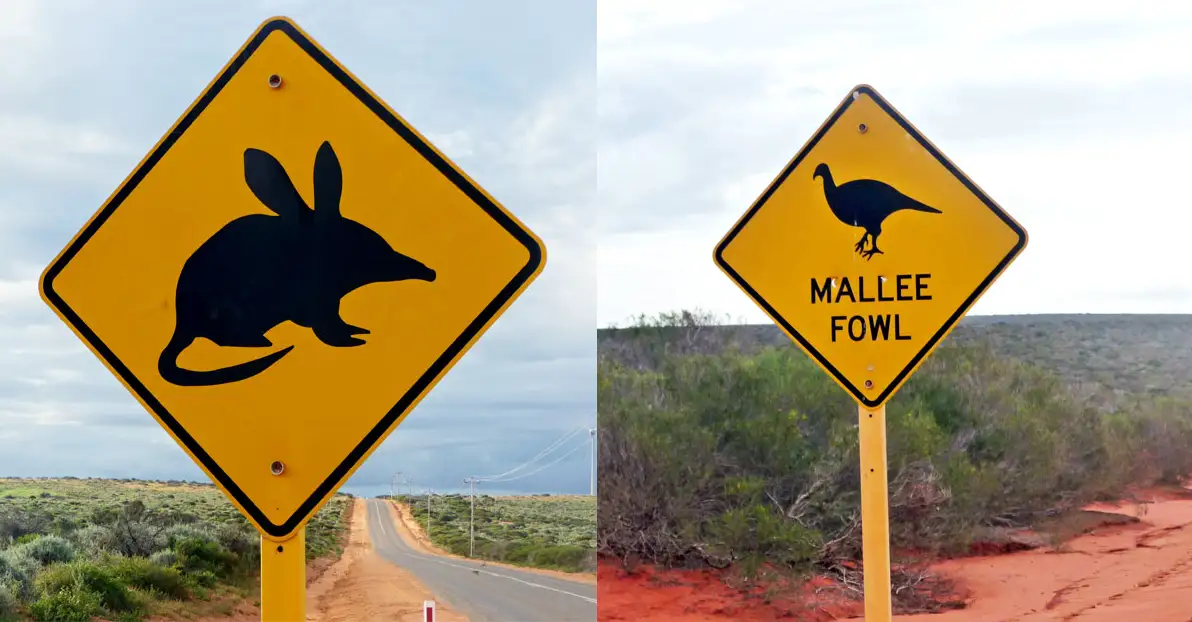
Shark Bay’s Project Eden successfully eradicated foxes and cats from the Peron Peninsula and reintroduced bilbies and malleefowl.
Back to table of contents
Kalbarri
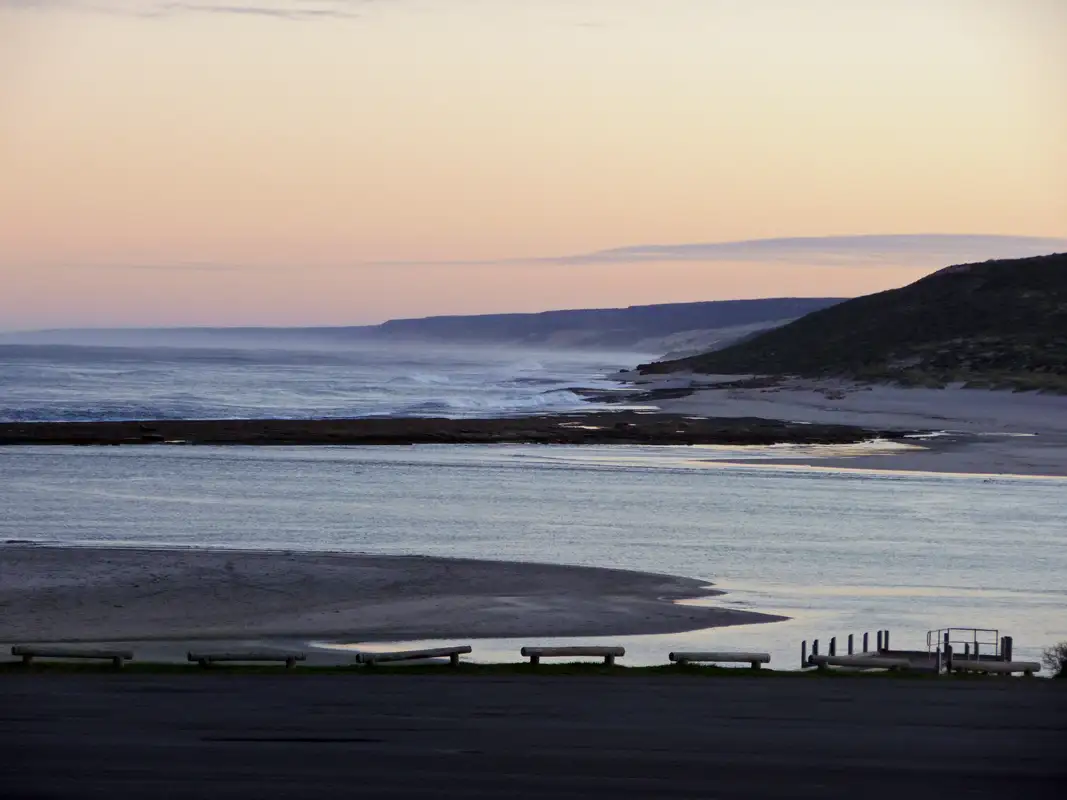
From Shark Bay, we drove four hours to Kalbarri a coastal town where we stayed for a couple of days. Kalbarri is an ideal base for exploring Kalbarri National Park and undertaking challenging hikes.
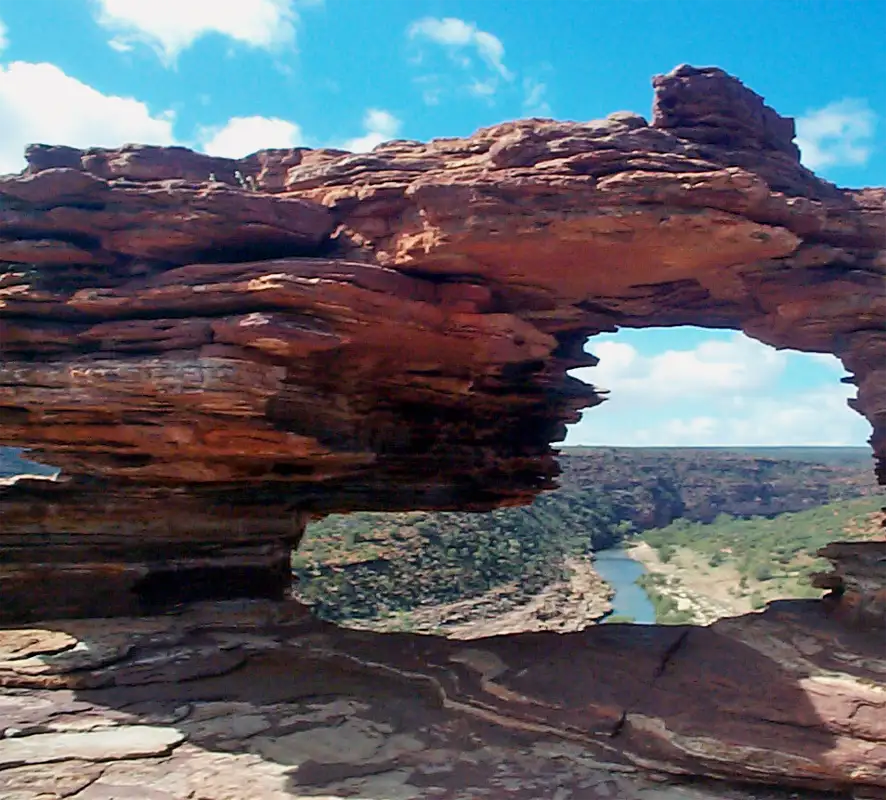
The Nature’s Window at Kalbarri is stunning. From there, you have a framed view of the Murchison River.
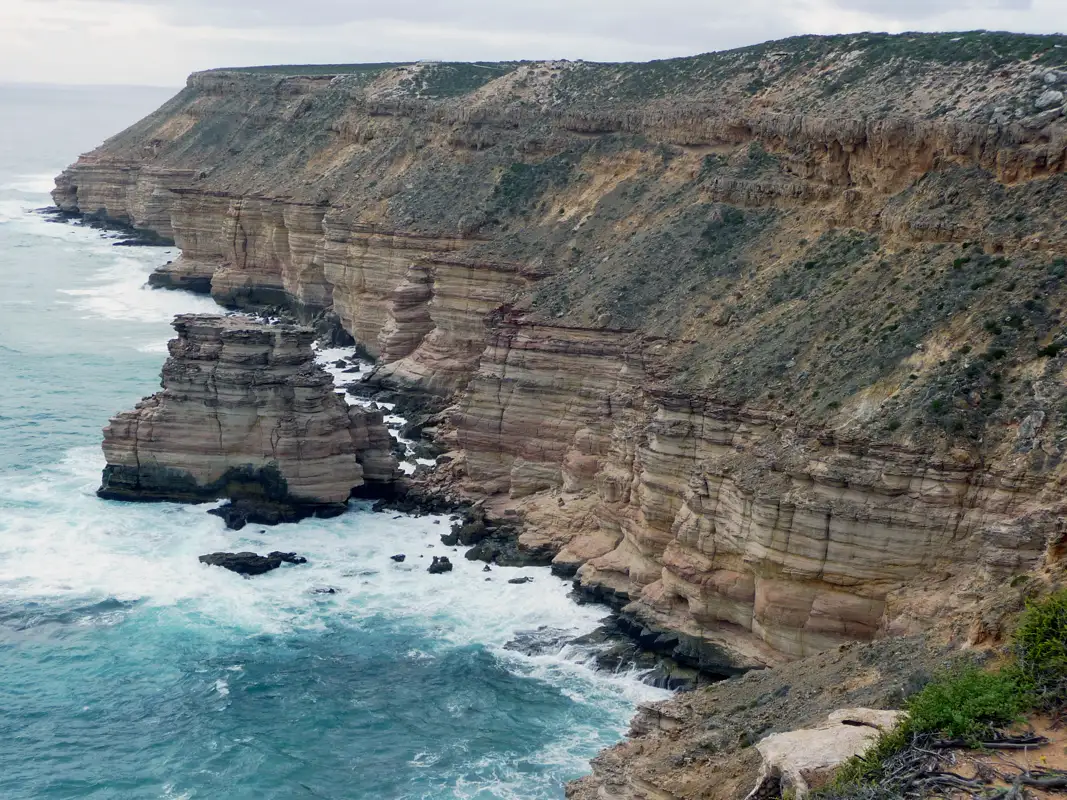
If you hike the Bigurda Trail, it’s an 8-kilometre (one-way) cliff walk, you’ll get these amazing panoramic views and see wildflowers in every colour imaginable.

During our hike, we spotted numerous magnificent Murchison Roses.
Back to table of contents
Cervantes last stop on our Exmouth to Perth road trip

This is our second visit to the Pinnacles. Again, we’re fascinated by this place. The 30,000-year-old limestone formations and bright yellow sands are breathtaking. We can’t stop shooting photos.

The place is fascinating, we could not stop taking photos.
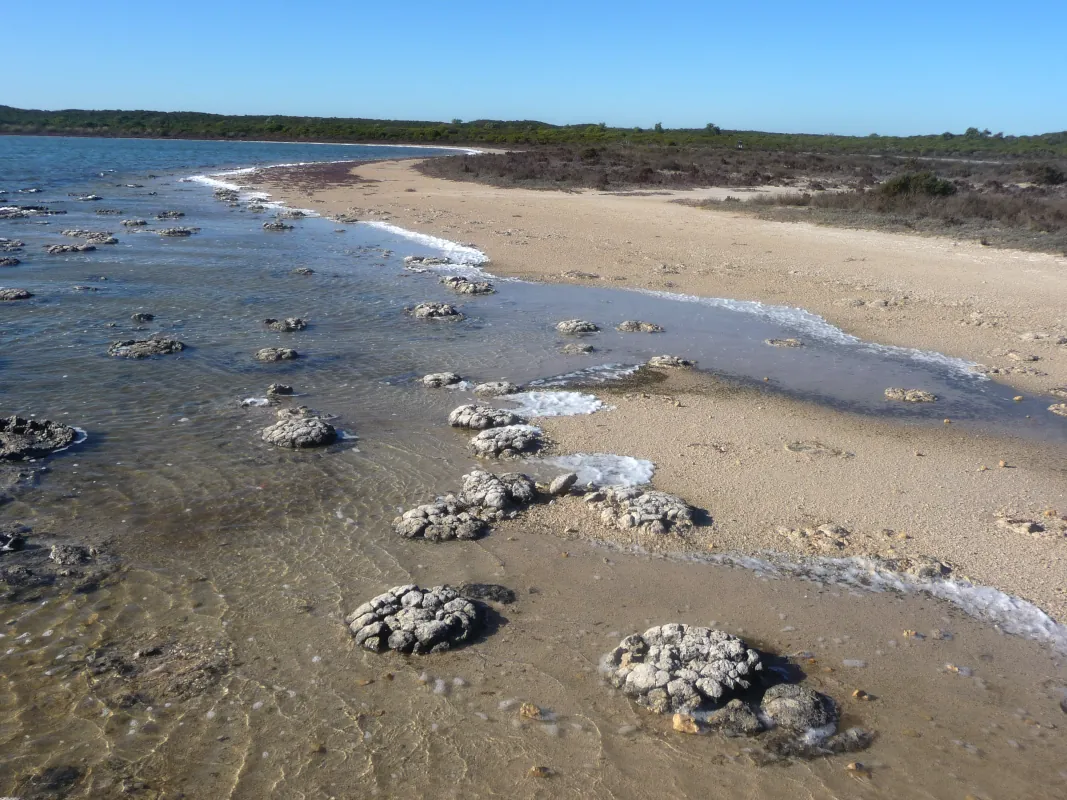
While in Cervantes we also visited Lake Thetis. The lake is famous for its stromatolites. These living fossils are estimated to be around 2000 years old and provide a glimpse into early life on Earth.
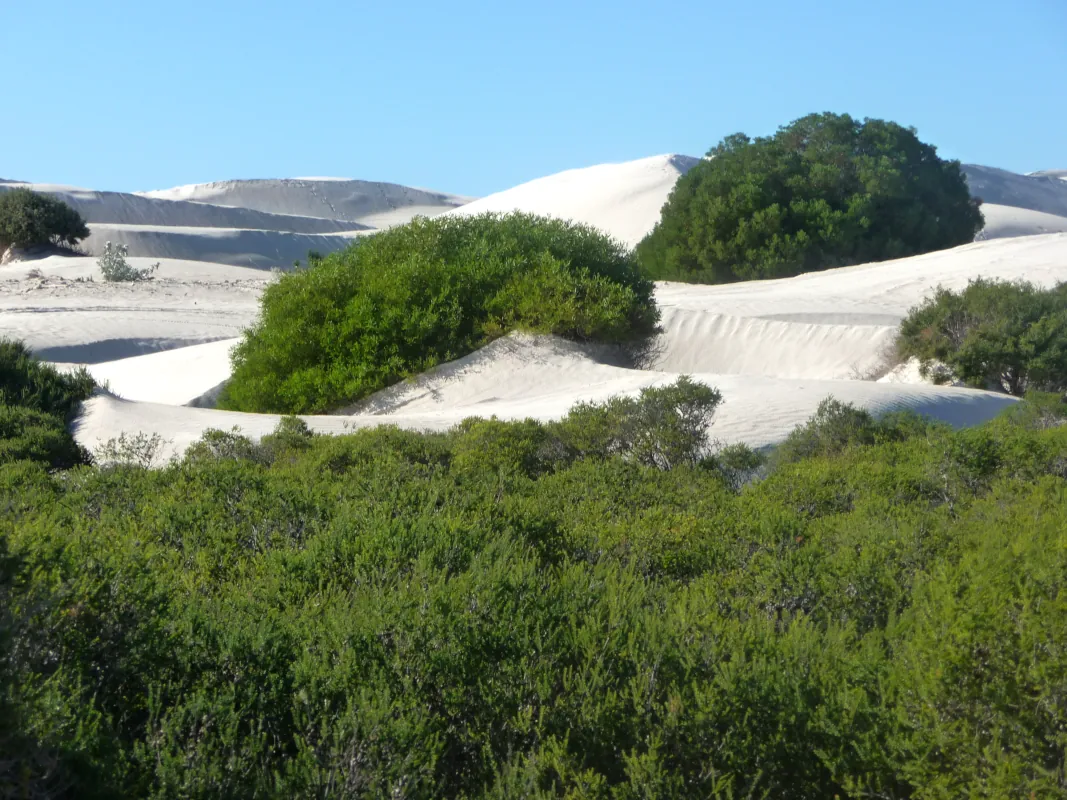
Whether you prefer hiking, sandboarding, or 4WD adventures, the Lancelin Sand Dunes have it all. In addition, you have spectacular views.
Back to table of contents
More from Western Australia: Wildflowers
More from Western Australia: The Kimberley